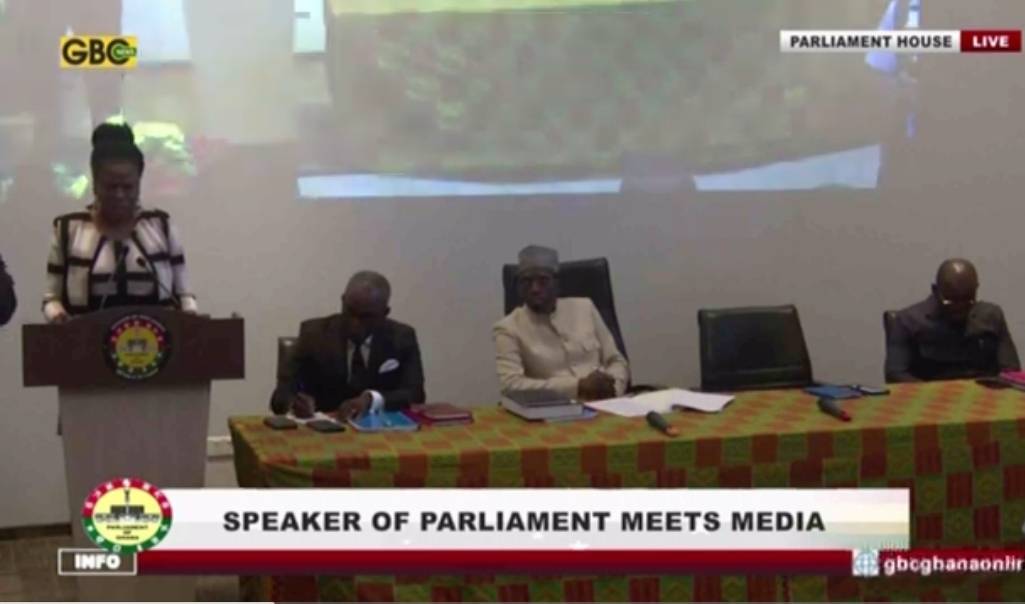Speaker of Parliament Alban S.K. Bagbin Speaks to the Media: What Are Your Expectations?
Alban S.K. Bagbin, the Speaker of the Parliament of Ghana, has been a central figure in the country’s political landscape since taking office in January 2021. Known for his decades of experience in Ghanaian politics, Bagbin’s tenure as Speaker has been marked by his strong stance on parliamentary independence, the importance of checks and balances, and his role in mediating the often-tense dynamics between Ghana’s executive and legislative branches. As the Speaker engages with the media, many citizens and political analysts are keen to hear his views on a range of critical issues facing the country, from the economy to constitutional reforms and legislative effectiveness.
1. Enhancing Parliamentary Independence
One of the key areas where expectations are high is Bagbin’s efforts to strengthen the independence of Parliament. In his speeches, he has often emphasized that a robust, independent Parliament is crucial for ensuring that the government is held accountable, especially given the increasing concerns about executive overreach. Many expect him to continue pushing for legislative reforms that will enhance the autonomy of Parliament, empowering it to check the powers of the executive and deliver better oversight.
Under Bagbin’s leadership, Parliament has taken bold steps in holding the government accountable, particularly in the areas of budget approval and public expenditure. However, questions remain about whether he can effectively balance the interests of his own party, the National Democratic Congress (NDC), with the broader goal of a non-partisan, independent Parliament. Bagbin’s relationship with President Nana Akufo-Addo’s government has often been fraught with tensions, particularly when it comes to contentious issues such as the budget approval and the passage of major policies. Many are watching closely to see if Bagbin can maintain his assertiveness while fostering constructive dialogue and collaboration across party lines.
2. Addressing National Economic Challenges
Another critical expectation from Speaker Bagbin’s tenure is his approach to the national economic crisis. Ghana’s economy has been facing significant challenges, including high inflation, a depreciating cedi, rising public debt, and widespread unemployment. As the country grapples with these issues, there is growing anticipation around the role Parliament can play in tackling these problems.
Bagbin, who has seen the country through numerous economic ups and downs, is expected to use his influence to ensure that government policies aimed at resolving the economic crisis are effectively scrutinized. Many Ghanaians hope that under his leadership, Parliament will prioritize economic reforms that will not only stabilize the economy but also ensure that ordinary citizens are shielded from the worst impacts of the financial downturn. A focus on job creation, fiscal discipline, and anti-corruption measures is expected to be at the forefront of Bagbin’s agenda.
3. Legislative Reform and Transparency
Bagbin has consistently highlighted the need for parliamentary reforms, aiming to make the legislative process more transparent, accessible, and responsive to the needs of the people. Many expect him to push for reforms in the way bills are debated, the representation of minority voices, and the introduction of more comprehensive public consultations. There are also calls for stronger parliamentary oversight of government institutions and increased transparency in the budgeting and spending processes.
As Speaker, Bagbin has faced criticism from some quarters for being overly partisan or for allowing political maneuvering to overshadow the business of Parliament. However, many expect him to use his vast experience and political acumen to find ways to balance the legislative agenda without succumbing to political pressure, ensuring that Parliament works for all Ghanaians.
4. Strengthening Inter-Parliamentary Relations
Bagbin has also spoken about the importance of strengthening Ghana’s ties with other national and international parliamentary bodies. As Speaker, he plays a significant role in representing Ghana at regional and global forums, including the Inter-Parliamentary Union (IPU) and the African Parliamentary Union (APU). Given the growing challenges posed by global political and economic instability, including the impact of the COVID-19 pandemic and the war in Ukraine, Bagbin’s leadership is seen as crucial in strengthening Ghana’s role in regional and global governance.
5. Constitutional Reforms and Electoral Issues
There is also speculation about Bagbin’s position on the ongoing discussions surrounding constitutional reforms in Ghana. Some have suggested that Bagbin, with his wealth of experience, could take a leading role in advancing the conversation on reforms, particularly in relation to the presidency, the balance of powers, and the electoral system. His stance on constitutional reform and electoral reforms is of particular interest to those seeking to improve the country’s democratic processes.
Bagbin’s extensive career in politics gives him a unique perspective on the evolution of Ghana’s democracy, and many expect him to provide leadership on electoral reform that could enhance the fairness and inclusivity of Ghana’s elections. Key issues such as the introduction of a second-round presidential election system, reforms in the appointment process of key officials, and improving the representation of women and marginalized groups in Parliament are areas where Bagbin’s leadership could make a lasting impact.
6. Addressing the Question of Parliamentary Unity
Lastly, many Ghanaians have high expectations of Bagbin's ability to foster unity in Parliament, especially given the close partisan divide. The current Parliament has been characterized by a slim majority, with the New Patriotic Party (NPP) and the National Democratic Congress (NDC) frequently at odds over major issues. While Bagbin has managed to maintain a largely neutral stance as Speaker, his leadership style will be tested in the face of growing partisanship and political fragmentation.
As the Speaker continues to engage with the media, the expectations remain high for him to provide clear leadership on these key issues. Whether Bagbin can deliver on these fronts will likely define his legacy in Ghana’s political history. For now, the eyes of the nation remain fixed on the Speaker as he navigates the complex challenges facing Ghana’s Parliament and the country as a whole.


